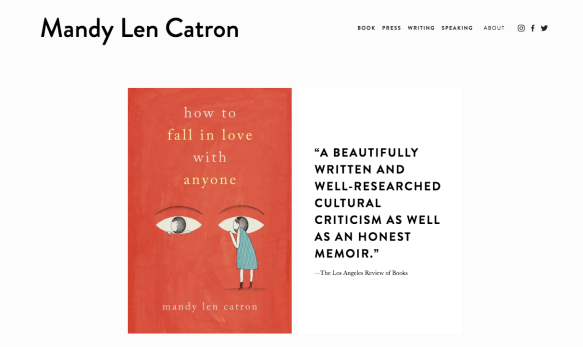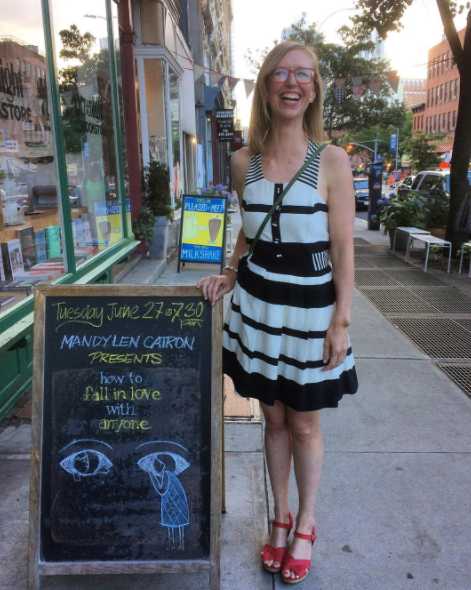It’s been well over a year since I posted here–not because I haven’t been writing, but because I’ve been pursuing a bunch of new projects. In fact, I quit my day job so I could pursue these projects every day and find out if that’s a great idea or a terrible one. Just typing that out still scares me. I’m hoping that’s a good thing. Maybe I’ll find my way back to blogging again, but in the meantime, here’s where you can find me:
I made a new website. If you’d like to follow what I’m doing and get updates on classes and new projects, this is the place to go:
I’m still writing about love, but mostly in the form of an advice column over at The Rumpus. For years I dreamed of having something published by the the folks at The Rumpus and I still feel a thrill when I see my name on their site. They are fierce and generous and totally dedicated to a better literary world, and I’m so grateful to have a part in what they’re doing. If you want to submit a question, please do!
And lastly, I’ve spent the past year and half trying to get some perspective on what it means to write a book. It turned out to be such an enormous experience that I couldn’t see around or over or through it. Writing about it felt too heavy and self-conscious. Even now, typing this, I find myself struggling to say plainly what I feel and what I’ve learned. But it turns out that drawing about it was easy–or not exactly easy but accessible. Fun, even. Mostly I love doing something I’m not especially good at. In fact, I like it so much that I made an Instagram page just for these weird, sad, sometimes-funny comics of mine. I also published a few over at LitHub to celebrate my paperback coming out.
I started this blog seven years ago after meeting an editor at a dinner party at a Chinese restaurant. Over spicy noodles, he told me he’d just offered two book contracts to writers based on their blogs alone. I didn’t think an editor would show up here and suddenly offer me a publishing contract. But I hoped a blog might make the very solitary experience of book writing a little more social. And it did. It also helped me understand that I had a voice and something to say. And it made this vague book idea of mine seem legitimate and worth pursuing. I figured out what I was doing 1500 words at a time.
Now I’m starting a new book and I have no clear plan for how to get there. But what I learned in the years I spent writing this blog was that it’s possible–at least a little bit–to write you way into the person you want to be. So that’s what’s next.



